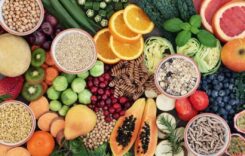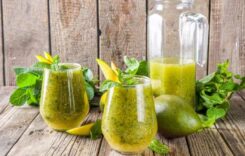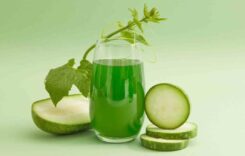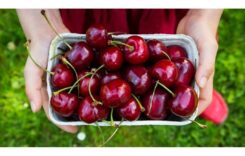Whether you have a tremendous yard or simply space for a pot on your patio, there will be some sort of natural product plant that you can develop at home. Some will keep you in natural products throughout the entire year, while others will give you enough for a pot of jam.
One way or another, there isn’t anything very like developing, collecting, and eating local food.
Look at these OGP articles that give you the lowdown on having the opportunity to grasps with natural product developing.
1. Elderberries
For those with a wet spot in the yard, be it a trench bank or a low region, elderberry bushes are an extraordinary decision for developing something palatable. These plants flourish in sodden soil, and they put out berries rapidly. Be that as it may, elderberries aren’t something just everybody has dealt with.
2. Pomegranates
Pomegranate organic products are viewed as exceptionally sound, with heaps of enemies of oxidants and restorative characteristics. The juice-loaded seeds are delightful as a new bite, or they can be appreciated in a wide range of recipes, in everything from pomegranate prepared tempeh to pomegranate oats burst.
3. Offbeat Organic products
Cherry, apple, pear, and peach are works of art; while others like figs and plums are natural products we are intimately acquainted with, know, and love, consequently their ubiquity. With the exemption perhaps of new figs, we can promptly track down them in the general store. While establishing a plantation, it’s a good idea to investigate these natural product trees to check whether they fit inside your USDA developing zone. Be that as it may, at times growing a plantation can likewise be tied in with developing those organic products we are less inclined to find in the generally common produce segment. There are bunches of natural products that, on the off chance that we don’t develop them at home, we aren’t probably going to eat them frequently.
4. Melons
During the mid year, a cut of sweet, succulent melon tastes so fine. Developing them in the home nursery can make them such a ton better. In any case, translating which kinds of melons to plant and when to establish them can a little overwhelm. In any case, they are loads of amusing to develop. They are wonderful rambling plants that can assume control over a nursery space or wrap themselves on a lattice. They have pretty blossoms that draw in honey bees, and watching the youthful natural products form into treats is so fulfilling.
5. Stone Organic products
Organic products that fall into the stone natural product class incorporate peaches, nectarines, apricots, cherries, plums, mangoes, lychees, olives, and dates. These natural products have one huge seed at the focal point of their drupes (natural products), and they will generally be blissful and simple to develop effectively from seed. It’s not exactly convoluted, by the same token.
6. Plums
Plums don’t get anywhere close to the press that apples, cherries, and peaches get, however they are delectable. Like peaches, nectarines, and apricots, plums are stone natural products, additionally called drupes, and they work magnificently as new organic product. They are little, exceptionally useful trees, ordinarily pruned to around 15-20 feet. They have wonderful white and pink blossoms in spring, and in pre-fall/early harvest time, they put out sweet brilliant organic products.
7. Rainbow of Organic products
Having a solid eating routine isn’t just about eating greens, don’t you be aware? It’s tied in with eating the reds, purples, and yellows, as well. The idea of eating a rainbow’s range of brilliant veggies is definitely not another one. You could currently be on the fleeting trend.
8. Mulberries
Mulberries come from the Morus variety of the Moraceae family, which makes them all the more firmly connected with figs, breadfruit, and jackfruit than to their blackberry copies! Mulberry trees produce a staggering harvest of delicate natural products that can be appreciated as jam, wine, and tea. Mulberries are unfathomably nutritious, and a tree can make a delightful expansion to your nursery on the off chance that you have the room and time to keep up with it










